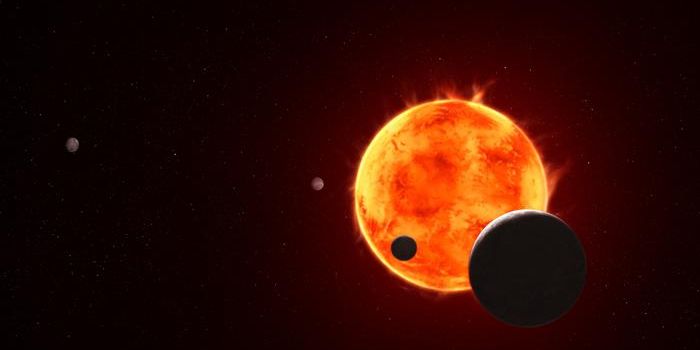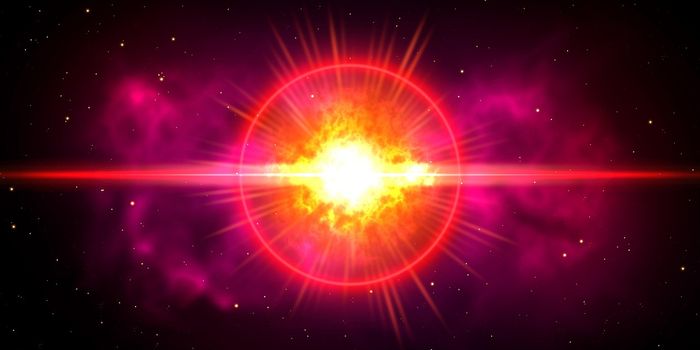Are Two Supermassive Black Holes About to Collide?
In a galaxy far, far away, two supermassive black holes may be about to collide.
The word “may” is vital here. The study was published in the preprint website arXiv, a database of not-yet peer-reviewed studies. It lacks the critical and rigorous academic peer-review process to corroborate its findings. However, the possibility of observing two black holes merging, a phenomenon that has only been theorized before now, is enough to excite astronomers. Here’s what we know about the impending collision:
Supermassive black holes are hypothesized to reside at the center of galaxies, and when they suck in material, they heat the surrounding galaxy causing it to glow. Scientists call this an active galaxy nucleus (AGN). Astronomers have recorded a few instances of AGNs in pairs, suggesting a future merger of black holes. Still, the research led by Nina Jiang at the University of Science and Technology in China found an AGN 1.2 billion light-years away that showed signs of two black holes spiraling closer and closer together.
The black holes didn’t just seem to be closing in, but they were closing in fast. The time periods of the cycles shortened, decreasing from a year to a month in only three years. The team predicts that the black holes will merge within the next three years with this data.
After the paper was released on January 27, 2022, other astronomers eagerly turned their telescopes to the sky to begin monitoring. If Jiang’s team is correct, the collision will be the first one in human history to be observed. With the burst of energy spanning the electromagnetic spectrum, these researchers predict that the merger will also release a wave of neutrinos. Neutrinos are subatomic particles with no charge, essentially no mass, and are incredibly difficult to detect, which means that this collision could provide a unique opportunity to study them.
Other astronomers are not so sure about the scale of this event since a black hole collision has never been observed before. Either way, an event like this would leave an imprint on the universe that scientists could observe for years to come.
And even though the research is exciting, it could all be circumstantial. The research revolves around a few observed cycles, which could be indicative of a merger or could simply be a coincidence. Some researchers have even considered that the AGN could be a single black hold instead of two, erasing the chances of a collision. Right now, there just isn’t enough data to be entirely positive.
Research in the coming months will continue to approve or disprove the hypothesis, but many astronomers are collecting as much data as possible in the meantime. If these black holes do collide, researchers must be ready. It’s a once-in-a-lifetime, historical event, and they won't want to miss it.
Sources: arXiv, Science News, Scientific American








